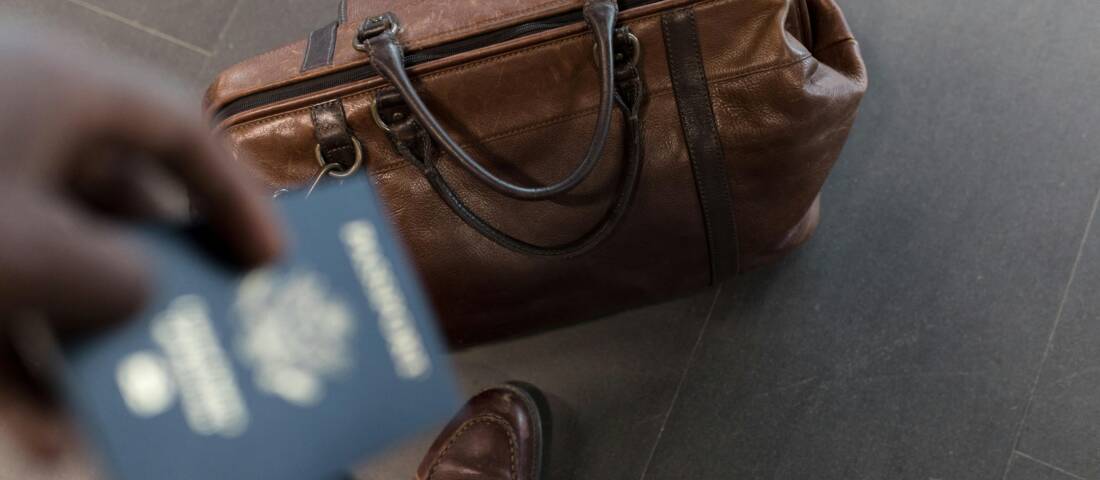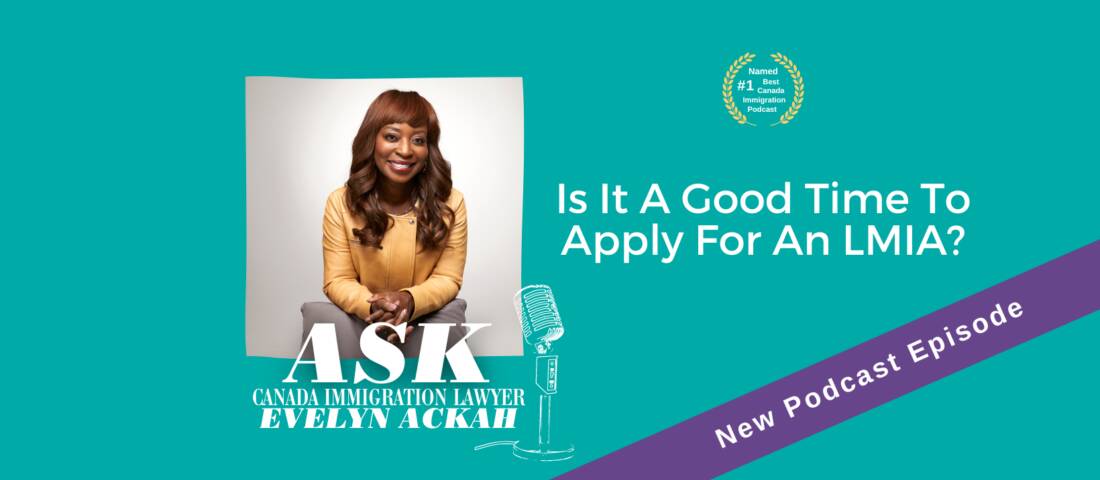The current COVID-19 pandemic is affecting temporary foreign workers in a unique way.
- What happens when a work permit expires during this time?
- How does a lay-off affect a foreign worker?
- Are foreign workers entitled to the financial relief measures offered by the Federal government?
In this video, I talk with my colleague Hermie Abraham of Advocation Professional Corporation and answer common questions about being a Canadian foreign worker during the fallout from the COVID-19 pandemic.
Special Compliance Inspections for Employers of the Temporary Foreign Worker Program during COVID-19
from Employment and Social Development Canada (ESDC)
As an employer using the Temporary Foreign Worker (TFW) Program, we would like to thank you for your contribution in supporting Canada’s effort to manage and recover from the COVID-19 pandemic. Like everyone adapting to the COVID-19 pandemic, temporary foreign workers and employers are expected to follow the latest public health and safety requirements and guidance from the Government of Canada, and from their respective provincial/territorial and local authorities, to help prevent the introduction and spread of COVID-19.
Further to the letter to employers sent to your attention from the Minister of Health, the Honourable Patty Hajdu, and the Minister of Employment, Workforce Development and Disability Inclusion, the Honourable Carla Qualtrough, the following information was outlined in regards to your responsibilities in ensuring the safety of your workers during the COVID-19 pandemic, and the consequences for non-compliance. Further guidance to employers was also shared.
The health and safety of Canadians and foreign workers in Canada is paramount. As such, we would like to inform you of new requirements as it pertains to employer compliance inspections during this time.
In accordance with new regulations that were introduced to the Immigration and Refugee Protection Regulations (IRPR) to Parliament on April 11, 2020, and came into force on April 20, 2020, employers have a specific responsibility in helping to prevent the introduction and spread of COVID-19. Please note that, in addition to these changes, it remains your responsibility to ensure that you are complying with the conditions attached to your Labour Market Impact Assessment (LMIA) and the IRPR.
Service Canada has the authority under the IRPR to conduct an inspection, with or without prior notice, in order to verify your compliance with the TFW Program, including within the first fourteen (14) days of the temporary foreign worker’s arrival.
Effective immediately, and during the course of the COVID-19 pandemic, Service Canada Investigators will conduct inspections that will focus on your compliance with the new IRPR requirements.
We acknowledge that some provinces/territories may impose additional requirements on temporary foreign workers and/or their employers. Those requirements must also be followed and will be taken into account as applicable in these inspections. For example, some jurisdictions require the mandatory quarantine of workers at a government-run facility. In those cases, Service Canada, would not inspect the employer to ensure accommodation requirements for quarantine are met. However, other requirements would remain in force, and could be the subject of an inspection.
These inspections will be conducted remotely/virtually, and will look for specific conditions, listed below, and must be completed within a shortened timeframe.
If selected, a Service Canada Investigator will contact you by phone and by email and you will have up to 48 hours to provide the requested documentation by email or through an online portal. As such, it is highly recommended that you have the necessary documentation prepared in order to respond to such an inspection within the designated timeframe. If there is no response, once the Investigator makes contact, you will receive a Notice of Preliminary Finding, by email and registered mail, to which you must respond to within five (5) days. If your response is not received, we will move to the process to apply penalties.
Employer Responsibilities
1. You must immediately inform Service Canada when your employee (s) arrive at your work location by sending an email message to:
ESDC.ISB.QUARANTINE-QUARANTAINE.DGSI.EDSC@servicecanada.gc.ca
In the email message please include:
- Subject: TFW arrival to (name of Business)
- Body: Date and time of arrival of employee(s) to your work location, and their names.
- Contact information for the TFW(s), if available.
- Your contact information including mailing address. If applicable, please include a secondary contact information.
2. During the worker’s initial 14-day quarantine or isolation period, you must ensure that:
- You do not do anything to prevent the worker’s compliance with orders or regulations under the Quarantine Act/Emergencies Act;
- Workers are paid wages, at least 30 hours per week, based on the hourly wage indicated on their LMIA/offer of employment, starting on the day they arrive.
If you provide accommodations, you must also ensure that:
- Workers are isolated separately from other workers who are not isolating or under quarantine;
- Accommodation for workers in quarantine at the same time, must enable the workers to remain at least 2 metres away from others;
- Cleaning products for the purpose of cleaning and disinfecting the accommodations regularly are provided to workers who are in isolation or quarantine; and
- Workers are able to comply with provincial / territorial public health orders under the Quarantine Act/Emergencies Act.
3. At any time, throughout the period of employment, you must ensure that:
- Private accommodations, that includes their own bedroom and bathroom, is provided to a worker who develops any signs of symptoms of COVID-19; and
- You do not do anything to prevent the worker’s compliance with a provincial/territorial law that regulates public health response to COVID-19.
4. During an inspection you must co-operate with requests by investigators to conduct the inspection in a timely manner; and provide relevant documents for examination.
All Service Canada employer inspections during the COVID-19 pandemic will be conducted virtually/remotely. When requested, information must be submitted electronically.
You will be asked to provide one or more of the following:
- Proof of wages paid (i.e. pay stubs);
- Photos of accommodations respecting social distancing space if more than one worker is in quarantine at the same time (i.e. sleeping quarters with beds 2 metres apart using tape measure, dining areas with chairs 2 metres apart using tape measure, and kitchen and washroom facilities);
- Photos of private isolation space if it is deemed necessary for the worker to be in separate accommodations; and
- Proof of adequate supply of sanitation products for the worker to use (paper towels, household cleaning and disinfecting products, dish soap, laundry soap, sanitizers, etc.).
During the course of the inspection, you may be asked for a virtual tour of the accommodations and/or facilities to verify these requirements. Some workers will be contacted for interviews conducted by phone or video conference.
Sending documents
Any information containing personal information, such as Social Insurance Numbers, banking information, or medical information, must be redacted, prior to sending to the Investigator. This does not include names or contact information.
You will be able to email these documents directly to the Service Canada Investigator during the investigation. You will also have the option to upload these documents through your LMIA Online account. Once uploaded, and to ensure your documents are received in a timely manner, please inform the Investigator by responding directly to the Investigator’s email address.
More information about how to set up an LMIA Online account can be found on the Service Canada website.
Penalties for non-compliance
If an illness related to COVID-19 is detected, Service Canada Investigators will immediately report this information to local public health officials who will take action as necessary.
If you are found non-compliant as a result of a Service Canada inspection, specifically to the new IRPR requirements related to COVID-19, the Department has the authority to apply the most severe consequences possible.
Penalties, depending on the severity of the violation, may include one or more of the following:
- Administrative monetary penalties ranging from $1,000 to $100,000 per violation, up to a maximum of $1 million over one year;
- A ban of one, two, five or ten years, or permanent bans for the most serious violations;
- The publication of your business name and address on a public website with details of the violation(s) and/or consequence(s); and/or
- The revocation of previously-issued LMIAs.
You have the right to judicial review should you not agree with the final decision.
As the situation regarding COVID-19 continues to evolve, please consult the TFW Program website regularly for the latest information:canada.ca/en/employment-social-development/services/foreign-workers/employer-compliance.html
Learn More:
If you have questions about your immigration application or other immigration issues
during the coronavirus restrictions or for post-restriction business,
contact Ackah Law today at (403) 452-9515 Ext. 100 or 1-800-932-1190
or email contact@ackahlaw.com








